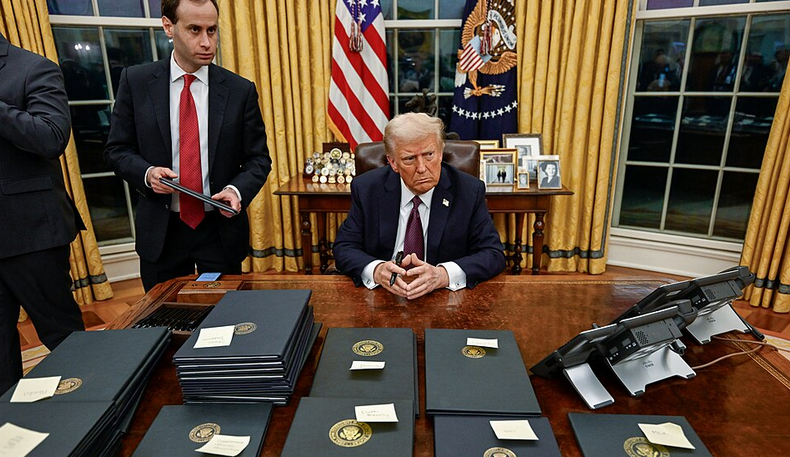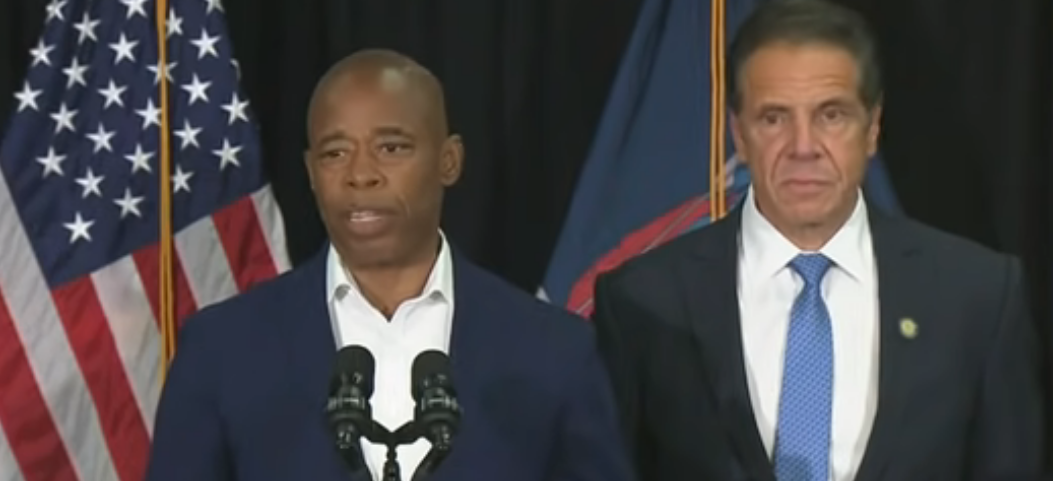Obama addressing 68th General Assembly of United Nations
Leaders of every member nation met in New York City at the United Nations’ annual General Assembly.
President Barack Obama stood before the United Nations and spoke of peaceful resolutions to world conflicts. But, in America gun violence is wreaking havoc.
Aaron Alexis, 34, African-American, entered a gun store in Virginia where he purchased a Remington 870 Express shotgun and later sawed-down the barrel and stock.
A Brooklyn native, Alexis joined the Navy Reserves and traveled around the country often in trouble with police. That shotgun he purchased legally in Virginia by using a valid Texas driver’s license.
He also passed a State and Federal background check, allowing him to gain employment at the Navy Yard.
On September 16, about 8a.m., Aaron Alexis entered the Navy Yard, a maze of military-owned buildings near the Capitol, in Washington, D.C.
He was employed as an information technology contractor working on computers. Alexis walked into the bathroom on the fourth floor and emerged shooting “with no discernible pattern,” said James Comey, FBI Director, in an ABC News interview. The victims were people of “all backgrounds, religions, and ethnicities,” he said.
When Alexis finished shooting 12 co-workers were gunned down, 8 injured. Then, officers killed the shooter; a man suspected of mental health issues. Yet, he had received an honorable discharge from the Navy, despite many tensions with his commanding officers, and passed a background check which cleared him to work as a government contractor.
His victims included Sylvia Frasier, 53, African-American, of Waldorf, Maryland, a deaconess and member of the arts and music ministry at Rhema Christian Center Church in Washington, D.C., as reported by the Washington Post. Another victim was Arthur Daniels, 51, African-American, a handyman at the Navy Yard. His widow, Priscilla Daniels, said it was only 4 years ago their 14 year-old son was shot in the back, gunned down while walking home.
That same week, in Nairobi, Kenya, 10 to 15 men attacked the Westgate Premier Shopping Mall. For 4 days, they roamed the Mall, allegedly shooting Christians, freeing Muslims, while customers and workers cowered in closets or played dead.
So far, 61 civilians and 6 officers are confirmed dead with 65 civilians missing among rubble where grenades caused 3 floors within the Westgate Mall to collapse. These Islamist extremists are believed to be part of an al-Qaeda branch known as al-Shabab, and may include American and British citizens.
Tragedy struck Kenya once before. In 1998 when the U.S. Embassy in Nairobi was bombed killing more than 200 mostly middle-class Kenyans. This recent attack ended with five of the shooters dead and 11 taken into custody. Others may have slipped out dressed as civilians. The gunmen were demanding Kenya withdraw its 4,000 troops from Somalia.
Kenya shares an eastern border with Somalia a nation known for its pirates, kidnappings, and lawlessness. Somalia is one of the poorest nations in the world where over 80% live in poverty. Kenyan soldiers joined by troops from Ethiopia, Burundi, Uganda and other African countries have limited the control of al-Qaeda and al-Shabab militants within Somalia. This motivated their attack on Kenya.
It was meticulously planned to destroy a gleaming symbol of Kenya’s progress. Kenyan President Uhuru Kenyatta claimed he “ashamed and defeated our attackers.” However, the Westgate Mall attack was another blow to President Kenyatta’s efforts to show his nation as a stable democracy. Kenya, a nation of 44 million, is the birthplace of Barack Obama, Sr., President Obama’s father.
When President Obama stood before the United Nations, he spoke of the recent conflict in Kenya as well as America’s past racial conflicts.
He said, “fifty years ago Martin Luther King Jr. told America about his dream, at a time when many people of my race could not even vote for President. Obama went on to say, “I stood in the small cell where Nelson Mandela endured decades cut off from his own people.”
The President paused.
Then, he said, “Who are we to believe that today’s challenges cannot be overcome?” The President’s hopeful words to the world must apply to the gun violence at home as well.
Gloria J. Browne-Marshall, an Associate Professor of Constitutional Law at John Jay College in New York City, is author of “Race, Law, and American Society: 1607 to Present” and a writer covering the U.S. Supreme Court as well as major legal issues. @GBrowneMarshall






